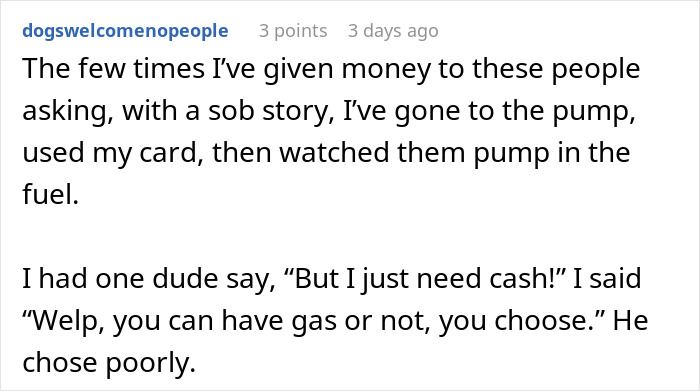Sadly, there’s a wide range of scams people have to watch out for. From fake love interests to once-in-a-lifetime business opportunities, these con artists get really creative to swindle money out of people. In fact, it was reported that $8.8 billion was lost to scams in 2022.
Redditor Titahn contributed to this figure when a stranger approached him asking for 10€ for gas to visit his dying mother. Despite sensing dishonesty, he decided to lend the cash and pawned it for his phone number. Not long after, the stranger ghosted him, so he decided to play a petty game with him that made the tenner completely not worth it.
Scroll down to find the full story and a conversation with Titahn, who kindly agreed to share more details about it.
A stranger “borrowed” 10 euros without the intention of paying it back

Image credits: cottonbro studio / pexels (not the actual photo)
The lender wasn’t going to let it go and played a petty game that made the scam completely not worth it
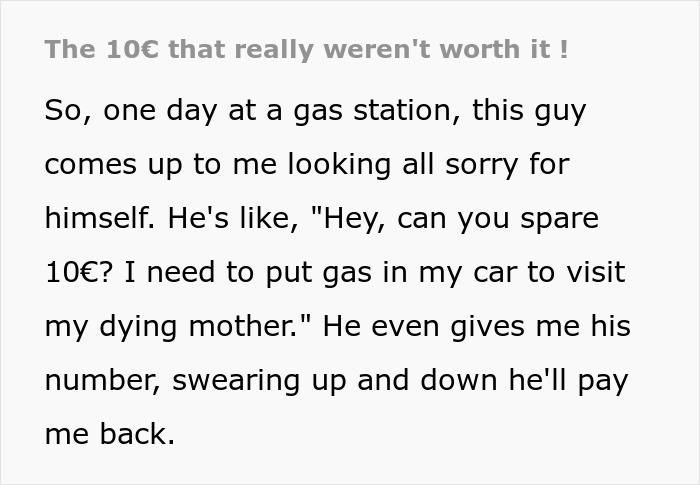
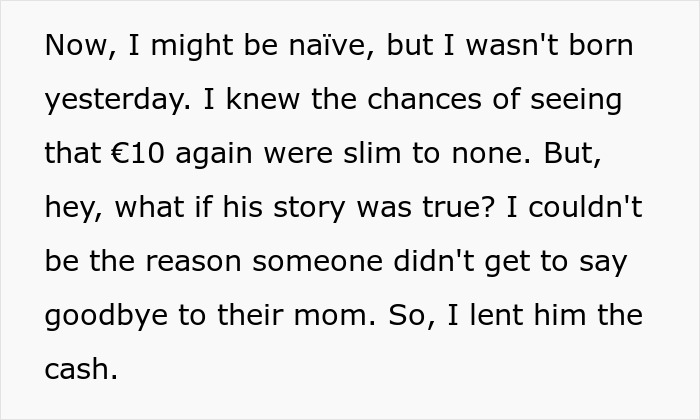
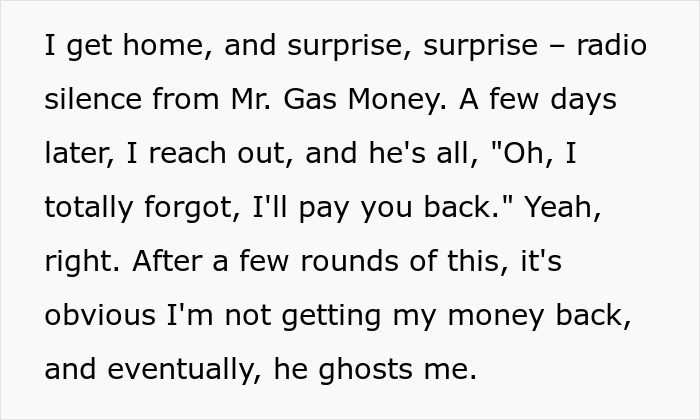

Image credits: Vlada Karpovich / pexels (not the actual photo)




Image credits: cottonbro studio / pexels (not the actual photo)
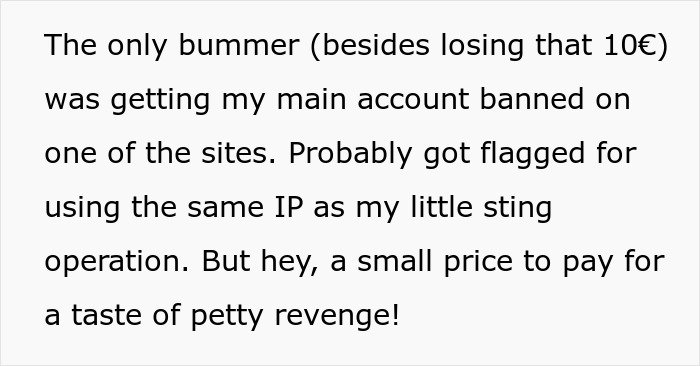
Image credits: Titahn
Scammers take advantage of people’s “truth bias”
Unluckily for us, con artists are always progressing and enriching old scams with new twists and technology. Because they are constantly upping their game, they’re difficult to stop from reaching more and more people.
In 2022, the most common strategies for swindling money were phishing, false billing, and online shopping scams. Such tricks have been around for years with the earliest technique traced back to the 1990s, when hackers used America Online to steal credit card information and commit other online crimes.
Bored Panda reached out to the original poster (OP) Titahn, who kindly agreed to tell us more about his experience. Naturally, we were curious to know what inspired him to share the story on the “Petty Revenge” subreddit. He told us “I discovered this subreddit rather randomly, read it, and thought that I may have a potentially interesting story to share.”
He doesn’t seem to hold a grudge against the person who scammed him out of this money. When asked if he would be willing to lend someone money the next time, he said “Unfortunately he wasn’t, by far, the first one to pull stuff like this to me. And as said, I’m naive, so if someone has a credible story, even if I know there is a low chance of it being true, I find it sad to be in a mindset of never helping others in case you may lose 10 bucks.”
Indeed, humans have this inclination called “truth bias” which pushes them to believe that others are telling the truth. Most people are honest, so we simply don’t question every statement from every person we meet. But it’s a big factor in every con, scam, and fraud, and it might mean that we shouldn’t accept everything we are told. Or perhaps just check facts more often, especially when making big decisions.

Image credits: Piccinng / pexels (not the actual photo)
Anyone can be scammed
Ultimately, anyone can be scammed, depending on the situation and their different triggers. For instance, one might take action quickly when told their bank account is locked, while a parent might have a stronger emotional response to a child in trouble. Personal situations like unemployment or a breakup can make a person more vulnerable to believe in a scam. Interestingly, repeat victims have also a greater risk of giving in as they might experience even higher stress levels.
The Head of Psychology at the School of Social Sciences, Dr. Pang, told DBS (a bank in Singapore) that if a person feels highly emotional, they should make sure that their decision is made rationally. To avoid agreeing, a firm no helps to establish boundaries, and asking many questions could help to catch them in their lies.
People shouldn’t be overconfident in thinking that they’re immune to scams as, ironically, it can have the opposite effect. Interestingly, con artists succeed because victims actually do what they say, so inaction and ignorance might be another option for avoiding them.
The author of the story hasn’t really mastered the art of saying no to beginner scammers like the one he met at a gas station. So he didn’t have recommendations for those who may be looking for one. “No real advice to give. 9 times out of 10 I don’t get any petty revenge, and it’s fine by me, I knew the risks when I lent the money. This guy got the revenge mostly because he swore so many times that he would pay me back for sure, that I didn’t forget it so easily!
Also, even if it was satisfying for me, I was a bit of a jerk: each call he got was from someone who hoped to be able to buy the last iPhone for a great price. Or a car. Or a house. And I made them hope for nothing and lose a bit of their time. I’m sincerely sorry about that!”

Image credits: Mikhail Nilov / pexels (not the actual photo)
The author jumped to the comments to provide more information
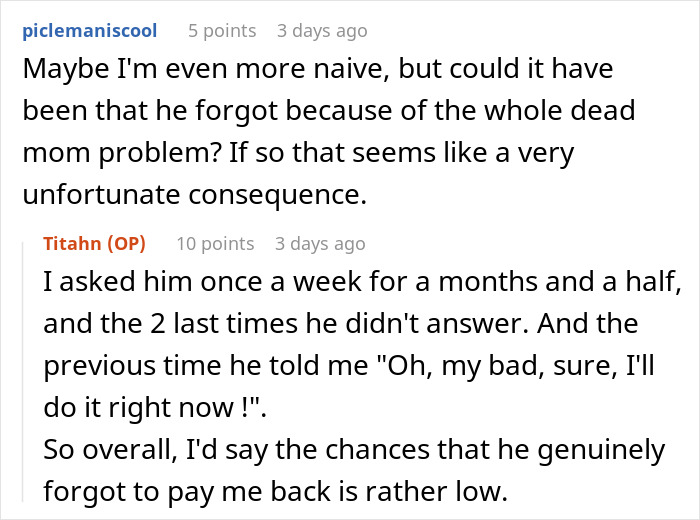
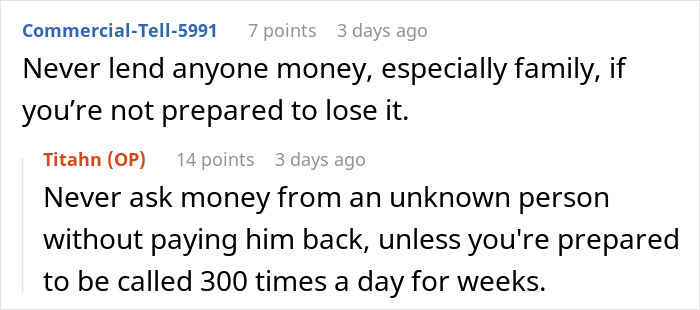


Commenters had various reactions








